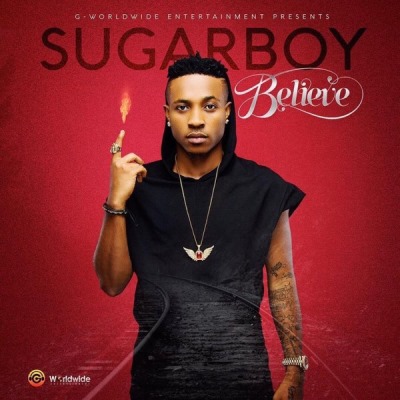When asked to choose between a five year G-Worldwide recording contract and a one-way ticket to North Korea, ordinarily you shouldn’t have to think, but label boss Emperor Geezy has contrived to build a moat around his Lagos-based music empire, while artists take turns to adulate their leader, so I wouldn’t blame anyone who hesitates before signing to someone who is constantly representing himself as the music version of Kim Jong-Un.
The trade-off in the deal seems to be stardom and financial support at the cost of honest interaction with the fans and worst of all: creative control. For instance, GWW artists do not get off their artificial island to work with other artists – it’s in the contract. The consolidation of resources may make business sense for GWW but for the artists on the hermit label, is the isolation really worth it in the long run?
Kiss Daniel delivered one of the best Afropop albums of 2016 in New Era but the singer has lost a lot of that momentum, in part, because you’re not going to hear Daniel’s singing voice again until GWW is ready to push out his next project or those of his label mates. Daniel’s label mate Sugarboy’s own album was released prematurely, with as much buzz as Chris Okotie’s last failed presidential campaign. The odds are now heavily stacked against this project being a commercial success and you fear for the promising singer’s career going forward if he too has some downtime.
The album is a 22-song endurance test he titled Believe and sang all (or mostly) by himself. It was grave error by GWW to think that the lesser distinguished artist, Sugarboy, could carry an entire album, like Daniel did, never mind one that is over an hour long. Unlike Vado, Sugarboy’s music suffers from a lack of dynamism and character, and his unsteady singing voice from a lack of presence – these are the kinds of inadequacies that guest artists help to distract listeners from or that aren’t as obvious on shorter, more focused projects.
Sugarboy features Kiss Daniel twice on Believe, as Sugarboy himself was featured two times on Daniel’s debut album. One of the songs, “Ekene” is an inspirational number, while the other, “Kilamity”, is a party jam that caused controversy when it was released as a single last month. Apparently Sugarboy recorded the first version “Kilamiti” and handed it to upcoming rapper Barz a few months prior, sans Kiss Daniel. The version that appears on the album however is a slow-burning, whine anthem featuring Sugar’s label mate, it’s no “Hola Hola” but “Kilamity” has potential and you fully understand why Sugarboy (and GWW) chose to repossess it.
The self-acclaimed village boy might be releasing his debut album in 2017 but he has undoubtedly been preparing for his big moment long before joining GWW. The legendary Mode Nine was actually the one who gave Sugarboy his first break by featuring him on “Badman” off the 2010 album Da Vinci Mode. Back then, the singer went by the stage name Sugarboy A1 and sported a short Afro, so when he sings about greatness being ‘a process’ on “Double”, you know he knows a thing or two about biding your time.
I’m just a village boy
I come here to hustle oh
I no come Lagos to count bridge oh
The love song “Seri Koko” was carried over from Sugarboy’s pre-GWW days, and so was “Jofunmi”(a remake of the chorus for “50 Nara, Hundred Naira” he delivered for Beazy) but otherwise the Believe project contains new music, largely produced by in-house producer Beat Burx. Even though Believe has a party theme, there are songs like “Know” and “Tomorrow” that bring some righteousness to all the ratchetness on display.
Impressively, one thing that hasn’t changed about Sugarboy from the early days is his music style. The singer has stuck to the Afro dancehall/reggae sound he introduced us to on “Badman” and submerges the Believe album in it. But he also infuses a heavy dose of Nigerian influences, as well as our local languages. For instance, he Nigerianizes the title of Snow’s classic reggae tune “Informer” to “Informa” and alludes to a certain woman catching his eye, possibly an ‘Ifeoma’. There are plenty of party songs like this dedicated to making women dance in the club but there’s also a beautiful song like “Dada Omo” that women can dance to on their wedding day – Believe is a balanced project.
Another strong positive is that Believe comes with a message, Sugarboy is now a Lagos boy – by way of Akwa Ibom – and his come-up story is inspiring. He shares a bit of his struggles from Ajegunle to Suleja to where he is now on songs like “Stunt Gidi” and “Neighbour”. Sadly, Sugarboy’s message and story get drowned in a sea of boring, repetitive songs that he struggles to sing alone. If you’re not really into hip-hop and you’ve wondered why a certain J. Cole going platinum without any features was such a big deal, now you know.


